Progeria is a term used to describe a progressive genetic disease identified by the rapid aging of affected individuals. The aging typically commences during the first two years of the lives of affected children. Progeria is also referred to as Hutchinson-Gilford progeria syndrome.
Progeria affected children seem to be normal in appearance at birth. However, after the age of about one year, they begin eliciting the symptoms of progeria such as slow growth and loss of hair. Intellectual growth and motor development in affected children remain normal. However, the average weight and height is typically less than the average weights and heights of other children of the same age.
Life Expectancy
Most children affected by the disease tend to live for about 13 years on average. Some affected children may die earlier, while other patients may live as long as 20 years or even more.Most progeria related fatalities occur due to heart abnormalities or strokes. Currently, no cure is available for the syndrome.
Symptoms
A few common signs and symptoms of progeria are as follows:
- Facial abnormalities include:
- The face is long and narrower than usual
- A pointy or beak-like nose
- The head size is disproportionately big as compared to the face
- Hair loss from scalp, eyelashes, and eyebrows
- Abnormally thin lips
- Delay in tooth development. Formation of abnormal teeth.
- An abnormally small jaw with relation to the remainder of the face
- Presence of prominent and distinct eyes
- A high-pitched voice
- Other anomalies include:
- Slow overall growth and development characterized by a below average weight and height
- The skin occurring on the torso as well as the body extremities is generally tight and hard
- Low or decreased percentage of body fat and muscle
- Presence of veins which can be easily seen through the skin
- Increased stiffness of the joints
- Resistance to insulin
- Some affected individuals may experience hip dislocation
- Varied irregularities, problems, and anomalies of the heartbeat
It may be noted that progeria does not result in different health conditions related to aging like far sightedness or Alzheimer’s disease.A few medical complications arising from the presence of progeria are listed below:
- Oxygen enriched blood and other kinds of nutrients are carried from the heart to various parts of the body by blood vessels called arteries. Such arteries experience hardening in children affected by progeria, thereby resulting in the thickening and stiffening of the artery walls. This in turn causes severe blockage of blood supply from the heart.
- Defects or anomalies of the cardiac blood vessels can lead to varied cardiovascular conditions, cardiac arrest, or congestive heart failure.
- Progeria also increases the risk to atherosclerosis and associated health complications.
- Presence of defects in the blood vessels that supply blood to the brain can cause varied cerebrovascular complications like strokes.
Causes
Different studies indicate that progeria is caused due to mutation of a specific gene called lamin A or the LMNA. This gene plays a vital role in the production of a protein responsible for holding together the nucleus, i.e. the center, of a cell. Researchers are of the opinion that this defect arising from the genetic mutation causes the cells to become unstable, eventually causing the varied signs and symptoms of aging that are linked to progeria.
Progeria is not a hereditary condition and hence cannot pass down in families. It is understood that the mutation occurs on its own, usually at the time of conception, when either a single sperm or egg develops errors or defects.
It may however be noted that other similar conditions like the Wiedemann-Rautenstrauch syndrome can be inherited. Fetus with the Wiedemann-Rautenstrauch syndrome experience the aging process within the womb itself, and the symptoms are clearly visible post birth. It generally begins during the teens or early adulthood, causes rapid aging, and shortens the life span of the patient.
Treatment
Progeria has no known cure. Treatment is aimed at managing the symptoms and preventing the onset of complications.
- Use of medications is dependent on the severity of progeria. Development of blood clots may be prevented with anticoagulants, cholesterol levels can be decreased with statins, while weight and height can be increased with the use of growth hormones.
- It is possible to slow down the progression of progeria and its associated symptoms via varied treatment procedures like angioplasty, coronary artery bypass surgery, or dilation of cardiac arteries.
- Physical therapy, occupational therapy, and other physiological therapies can help alleviate joint stiffness and hip problems. This allows the affected children to remain active.
- Daily aspirin intake can help prevent the risk to cardiac arrests and strokes.
- A rapid aging process causes adult teeth to develop earlier than usual. Hence, baby teeth or primary teeth may require extraction.
Survivors of Progeria (Inspirational Kids)
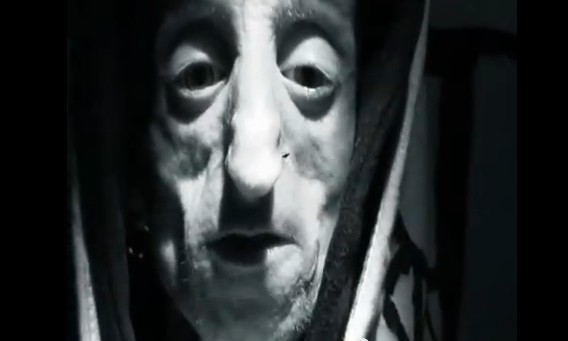
- Leon Botha was one of the oldest survivors of progeria. He was a famous South African DJ and painter. He died on 5 June 2011 at the age of 26.
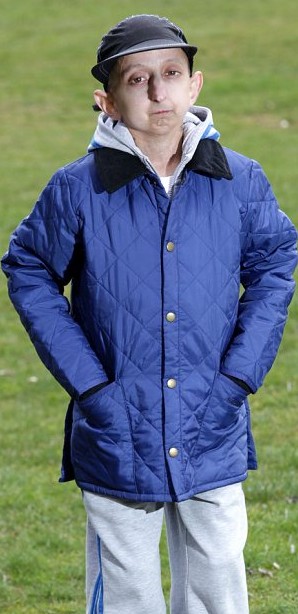
- The oldest patient of progeria in Europe is Dean Andrews. Even though he is in his early 20s, his body appears to be around 160 years old.
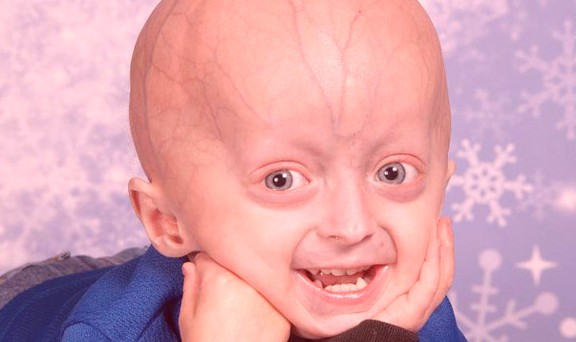
- Meg Casey from Connecticut is considered the oldest survivor of progeria. She died after living for 29 years.
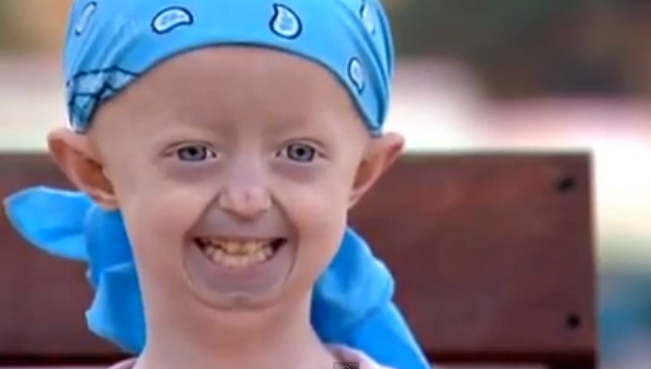
- Hayley Okines, an English Progeria-affected patient, is all of 15 years. She is an inspiration to many, as she has managed to live longer that what was medically predicted.

- Adalia Rose Williams, aged 7, is one of the most well-known faces of Progeria. She is both an inspiration and an Internet sensation with more than 7 million Facebook fans. Her videos which include her dancing to ‘Gangnam Style ‘‘Get Silly’ ‘Kolaveri Di’ and Ice Ice Baby’ are quite popular.
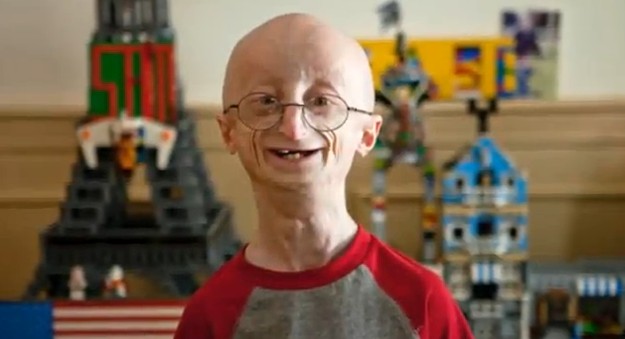
- Sam Berns, from Massachusetts, is the most recent patient (at the time of writing) to have died due to complications from Progeria. The 17 year old passed away on January 17, 2014. A documentary movie ‘ Life According to Sam’ based on his life, was screened at Sundance Film Festival, this year and has also been among one of the 15 short-listed documentary films for Oscar nominations.